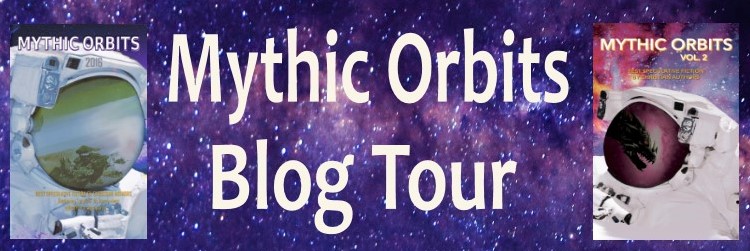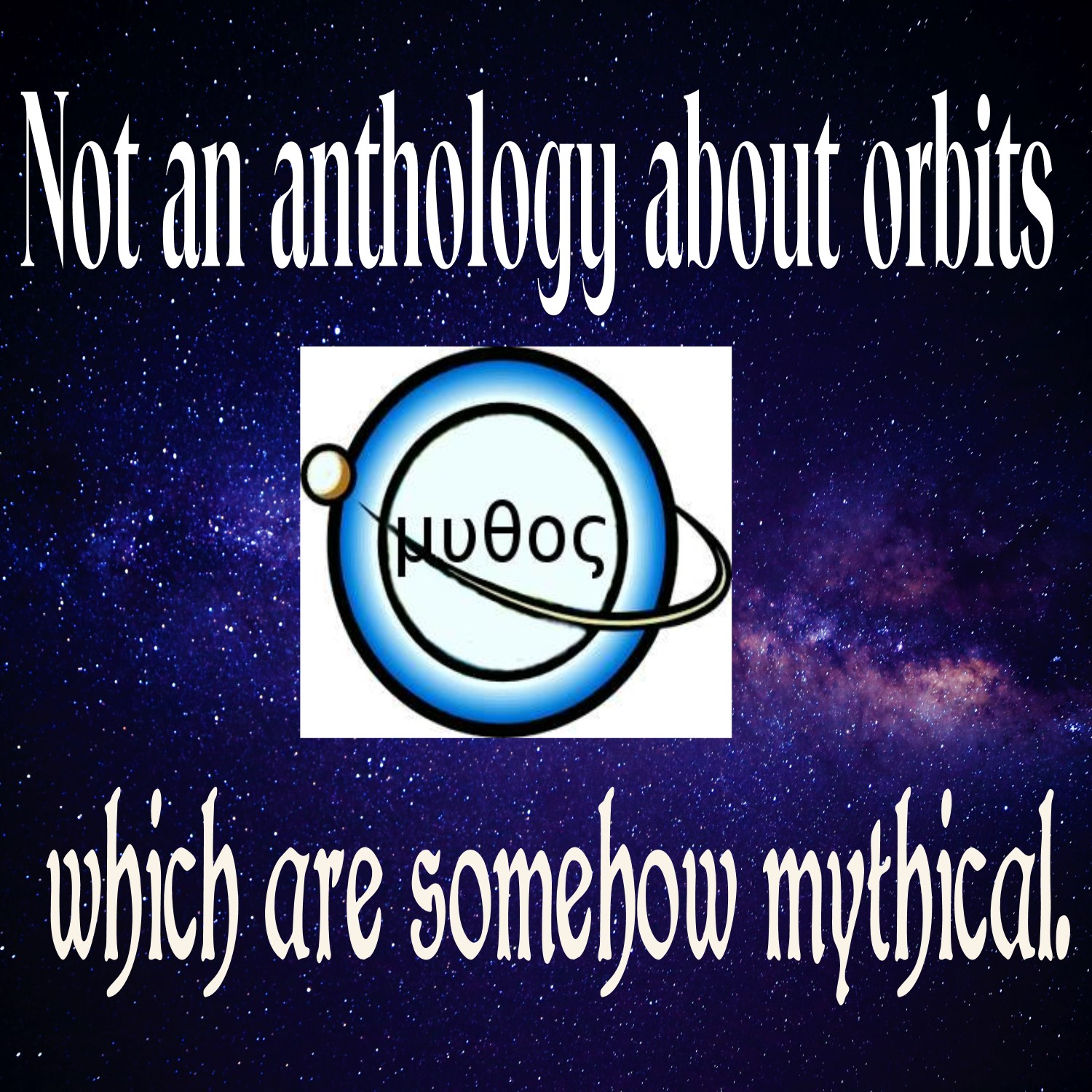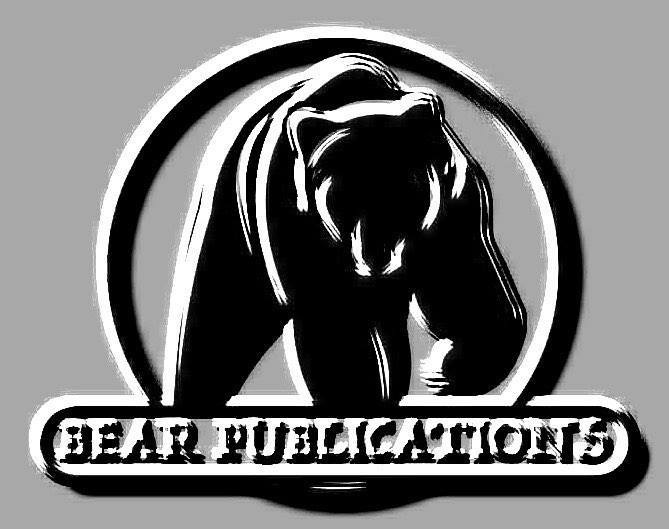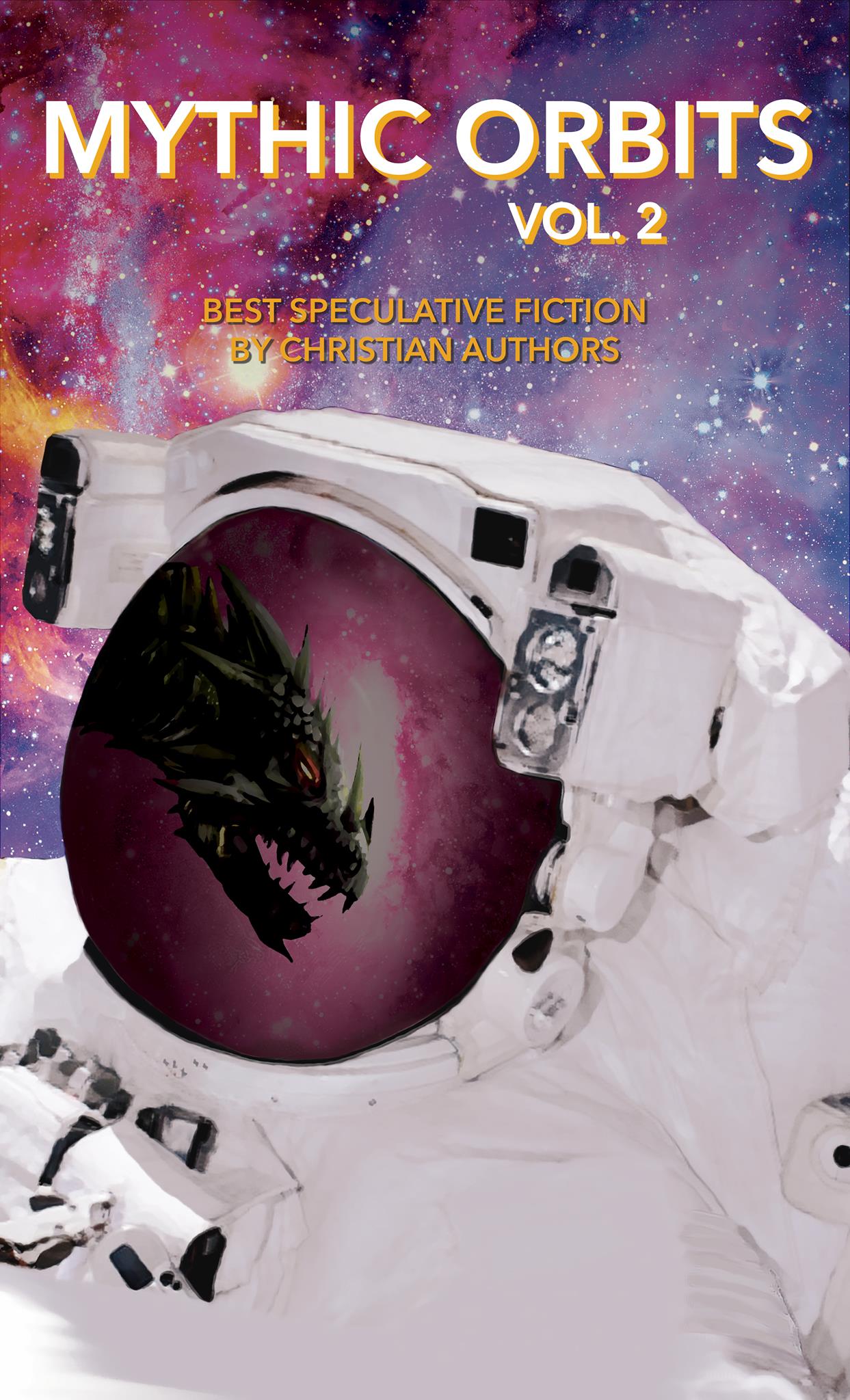
This is a guest post, posted as part of the Mythic Orbits blog tour. Kristin and I are both in Volume 2 of Mythic Orbits.
About Mythic Orbits
You might be wondering what in the world “Mythic Orbits ” refers to. I’m not sure if it will help reassure you to tell you the name Mythic Orbits was simply intended to suggest both science fiction and fantasy and to identify these books in a distinctive way, along with any that follow after in the series.
Just as these anthologies represent a wide variety of genres, there is no common theme to these tales, though the subject of empathy or lack thereof does come up in them repeatedly. This is most definitely not an anthology about orbits which are somehow mystical.
These anthologies are a showcase for the best stories submitted in the general field of speculative fiction by Christian authors. They represent a wide variety of genres, including science fiction, fantasy, horror, and paranormal.
The main goal of these anthologies was to demonstrate that Christian authors can write speculative fiction well. Stories with a wide range of appeal are included here, mostly serious, some with humor, some with “happy endings” and others clearly not so happy. All of them worth reading.
Some of these stories feature Christian characters in speculative fiction worlds, some make use of Christian themes either subtly or overtly, while some have no discernible connection to Christianity at all. Christian authors are featured in this collection rather than specifically Christian-themed stories.

So, is it widely-known all over the world that Christians write speculative fiction?
Well, clearly Christians who themselves are speculative fiction writers know what they write. But does everybody else?
Especially when we're talking about theologically conservative Christians, Evangelicals of some sort, professed Bible-believing Christians, do people know about their works? Is it legitimate for people to wonder if writers with personal convictions along these lines produce speculative fiction, that is, science fiction and fantasy and related genres like LitRPG, paranormal, and horror?
These books provide an answer: Not only do Christian writers produce speculative fiction stories, they write some great ones.
Enjoy these examples!
Travis Perry (Editor and Publisher)
Mythic Orbits 2016
Fourteen of the best speculative fiction stories by Christian authors, spinning science fiction, fantasy, horror, and paranormal genres into worlds of intrigue and delight.
Featuring Graxin by Kerry Nietz, author of Amish Vampires in Space and A Star Curiously Singing, Mythic Orbits 2016 has something for every speculative fiction fan.
Featuring Graxin by Kerry Nietz, author of Amish Vampires in Space and A Star Curiously Singing, Mythic Orbits 2016 has something for every speculative fiction fan.
Mythic Orbits Vol. 2
In a series praised by both Tosca Lee, Kathy Tyers, and Kerry Nietz, this anthology of eleven speculative fiction stories by Christian authors shines in science fiction, fantasy, horror, and LitRPG genres. Featuring Kat Heckenbach’s “Mark the Days,” this collection has something for every speculative fiction fan.
Featured Authors:
- Mark Venturini (Mythic Orbits 2016)
- Jill Domschot (Mythic Orbits 2016)
- Richard New ( Mythic Orbits 2016)
- Kirk Outerbridge (Mythic Orbits 2016)
- Cindy Emmet Smith (Mythic Orbits 2016)
- Lisa Gefrides (Mythic Orbits 2016)
- L. Jagi Lamplighter Wright (Mythic Orbits 2016)
- Joshua M. Young (Mythic Orbits 2016)
- Matthew Sketchley (Mythic Orbits 2016)
- R. V. Saunders ( Mythic Orbits 2016)
- Sherry Rossman (Mythic Orbits 2016)
- Kerry Nietz (Mythic Orbits 2016)
- Linda Burklin (Mythic Orbits 2016 & Vol. 2)
- Kat Heckenbach (Mythic Orbits 2016 &Vol. 2)
- Steve Rzasa (Mythic Orbits 2)
- Donald Crankshaw (Mythic Orbits 2)
- CW Briar (Mythic Orbits 2)
- Cindy Koepp (Mythic Orbits 2)
- C. O. Bonham (Mythic Orbits 2)
- Kristin Janz (Mythic Orbits 2)
- William Bontrager (Mythic Orbits 2)
- A. K. Meek (Mythic Orbits 2)
- Keturah Lamb (Mythic Orbits 2)




